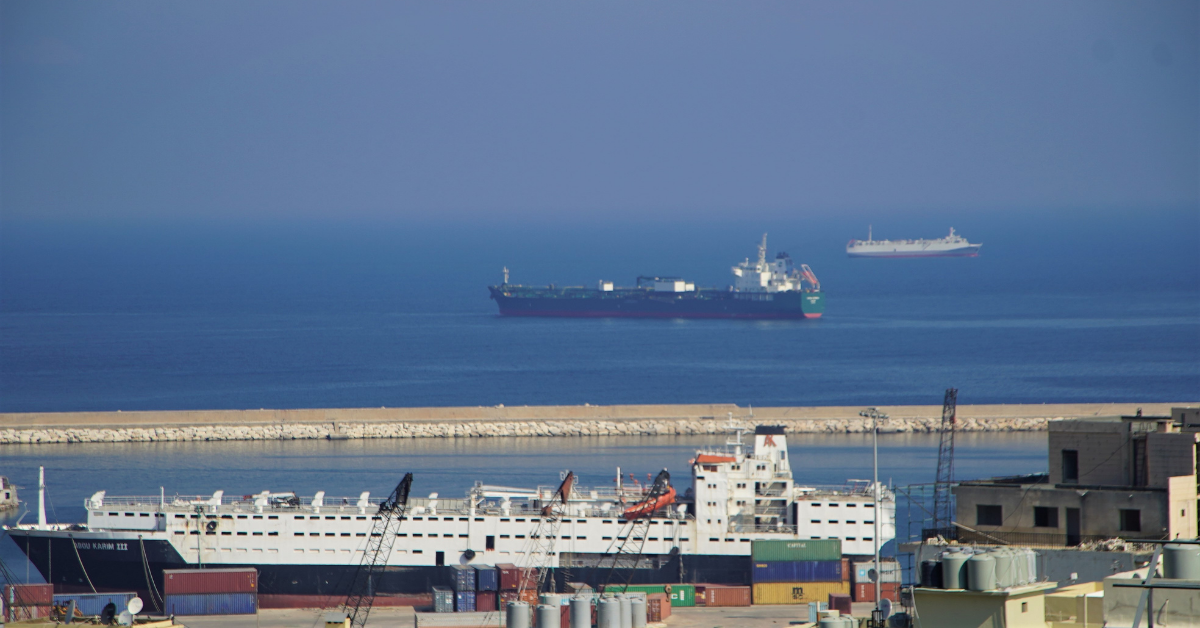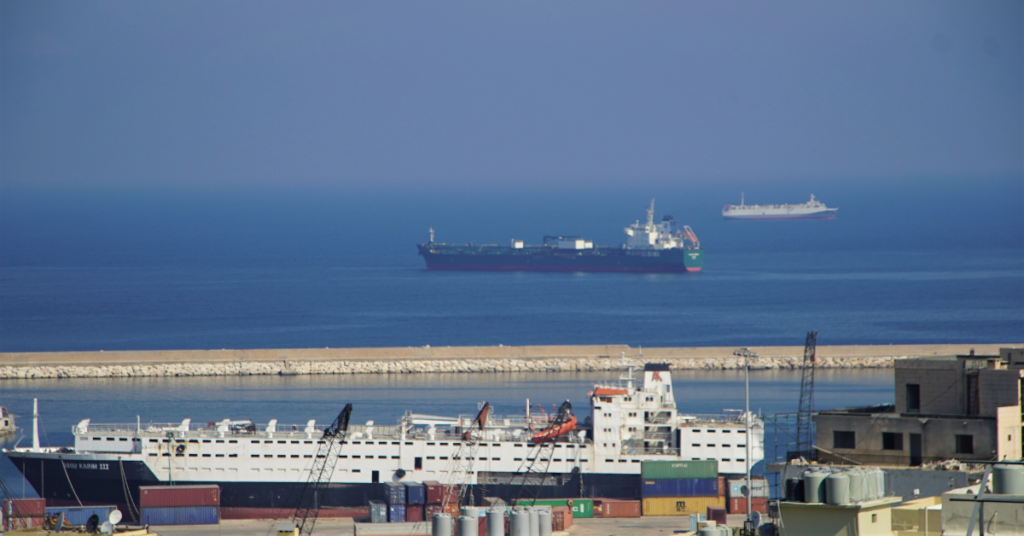
Rethinking agriculture is critical in building a sustainable economic model that reduces geographical inequalities and ensures food security. In Lebanon, local and regional socio-economic and political dynamics have constantly influenced agricultural expansion. Today, the financial crisis and the collapse of the Lebanese pound have put Lebanese food security at risk.
The Central Administration of Statistics (CAS) mentions that the consumer price index increased by 240 percent between October 2019 and October 2020, while food prices increased by 367 percent during the same period, bearing in mind that between March 2019 and July 2021, the cost of a liter of milk increased by seven times from LBP 3,000 to LBP 22,000.
With all these circumstances emerging, having the highest percentage of cultivable land per capita, in the Arab world, according to USAID, opens a glimpse of hope.
“Approximately 60 percent of citizens outside greater Beirut rely on agriculture—directly or indirectly” (USAID, 2021).
Import Replacement & Growth of Lebanese Export
The United Nations Office for the Coordination of Humanitarian Affairs (OCHA) reports that financial shocks lead to acute food insecurity. Yet, Mr. Said Gedeon, Deputy Director at the Chamber of Commerce Industry and Agriculture of Zahle and Bekaa, notes that the financial crisis encouraged the Lebanese food manufacturers to quickly provide local products as a substitute for imports. Gedeon insists that the Lebanese agri-food industry produces high-end brands that wouldn’t exclusively replace international products but can challenge those brands. The production of local ketchup, chips, and cheese, either yellow as in kashkaval or white mozzarella, are considered by Gedeon as perfect models whenever mentioning local food products.
According to the current economic situation, import replacement has become crucial, as it encourages supermarkets to invest in local brands. Import replacement is an economic mechanism created to complement exporting to provide a more balanced and integrated approach to local economic growth and sustainability. A community focused on import replacement would aim to produce goods and services that are being imported to keep money circulating in the region. Developing local production would boost its ability to meet the people’s economic, social, and cultural demands within the area, which the Centre for Local Prosperity observes as a process of self-determination rather than a spirit of isolationism. Gedeon considers the timing to be perfect to consider this economic tool as a solution for the agri-food industry since it permits the purchase of raw material and also boosts job creation in the land of origin while making better use of industrial and agricultural lands.
According to Gedeon, the Lebanese diaspora has a worldwide footprint in establishing business relations outside their home country. This diaspora encourages local manufacturers to work in the agriculture, agri-business, and agro-tourism areas, which leads to developing and exchanging knowledge and opening doors for small agricultural businesses to reach new countries and receive foreign currency. Exports bring fresh dollars into the country, which improves the exporting nation’s GDP, and once a state exports its goods, new customers are targeted. Gedeon considers this process to be an adequate definition of growth. Besides that, the agri-food sector is an influential patron of the Lebanese economy, and the Investment Development Authority of Lebanon declares that in 2018, the agri-food sector was the most significant contributor to the industrial sector.
Clusters bring together SMEs and existing companies in Lebanon’s agri-food sector, creating a synergistic environment that fosters innovation, collaboration, prosperity, and growth, and that is what QOOT does.
Supporting Lebanese Agri-food Production
Agri-food firms in Lebanon have access to various Business Support Organizations that provide high-quality advisory services to help them develop and innovate. For that to keep on happening, Lebanon has to maintain the bilateral and multilateral agreements signed, such as the EU-Lebanon Association agreement, where Lebanese industrial and most agricultural products used to benefit from a free pass to the EU market. Due to the significant role of international funding and programs including the Embassy of the Netherlands, USAID, UNDP, and the European Bank for Reconstruction and Development EBRD, which have unique programs for the agri-food sector and deliver targeted consultancy help, the agri-food sector in the country is believed to remain safe, while a lot of different sectors are tumbling. These treaties have positively influenced Lebanese exports, particularly to European markets, and clusters had an essential role in guiding Lebanon to sign such agreements. Clusters bring together SMEs and existing companies in Lebanon’s agri-food sector, creating a synergistic environment that fosters innovation, collaboration, prosperity, and growth, and that is what QOOT, Lebanon’s Agri-food Innovation Cluster, does. The last is considered a leading innovation cluster that encourages collaboration, reinforces linkages, and increases Lebanon’s food sector opportunities.
Although the region is currently experiencing unstable geopolitics, alongside financial difficulties, Gedeon insists on finding resolutions, as that remains the only track to resist this difficult time.
He refers to his twenty-two years of experience in the field, through which history has verified that such difficulties demand time before things drive back to normal. According to Gedeon, the response that might help speed the recovery process extends increasingly toward the Mediterranean, by using the sea as a way to connect Lebanon to the globe.
Yet, the National Agriculture Strategy 2020-2025 (NAS) mentions several flaws and threats when examining agri-food production in Lebanon. Small farms and agribusinesses, expensive production fees, indigent farmer organizations, and weak infrastructure are all challenges that weaken the agri-food sector in the country. In contrast, the strengths and opportunities that the industry has to use are several, noting the promising agroecological requirements, high innovation potential, and the old export potential of the country with its perfect geographical spot in the Mediterranean. Here comes the importance of forming clusters, which Bachar Berro, agriculture technical advisor, considers a must since it permits governance, coordination, and collaboration among different stakeholders while using firms and academia to strengthen the sector. Berro adds that “working alliances and shared goals reduce the cost of raw materials, mainly if a decent government is there, dealing with the foreign state.” To fulfill the role of facilitator of agricultural innovation, QOOT launches a broad spectrum of activities at the local, regional and international levels. Alongside strengthening technical prowess and nurturing a culture of partnership and mutual exchange within the Lebanese agri-food sector, QOOT regularly operates to bring global opportunities to their cluster’s innovative businesses.
Untapped Export Potential
“Based on the ITC methodology to assess a country’s export potential, the untapped agri-food export potential in Lebanon amounts to USD 900 million, almost half (47.7%) of which is from fruit and vegetable production and another fourth of it (23.8%) made by food products (prepared or preserved).” (NAS, 2020)
In such a complex context, the agri-food sector can recreate a pivotal function in absorbing the crisis-induced monetary shocks and donating to the rehab of the Lebanese economy, eventually contributing to positioning the economy on a sustainable development track. Lebanon’s primary objective should be based on increasing its domestic market share and exports to foreign markets. The country ought to reduce its cost structure and formulate a high-end fruit and vegetable market to achieve this goal.







